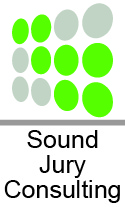Recognizing Strengths in the Other Side’s Case Might Make You More Persuasive
Most litigators cringe at the idea of recognizing strengths in the other side’s case (or weaknesses in their own). It doesn’t seem right. Instead, it seems like a recipe for disaster, an acknowledgement that the other side might have a strong case. However, research suggests that recognizing the strengths of the other side’s arguments (or the weaknesses in your own) actually increases your persuasiveness. I went looking for this research after a recent experience in Seattle, Washington. The plaintiff attorney in this case chose to remain silent on a couple key weaknesses in his case. He didn’t even acknowledge them

